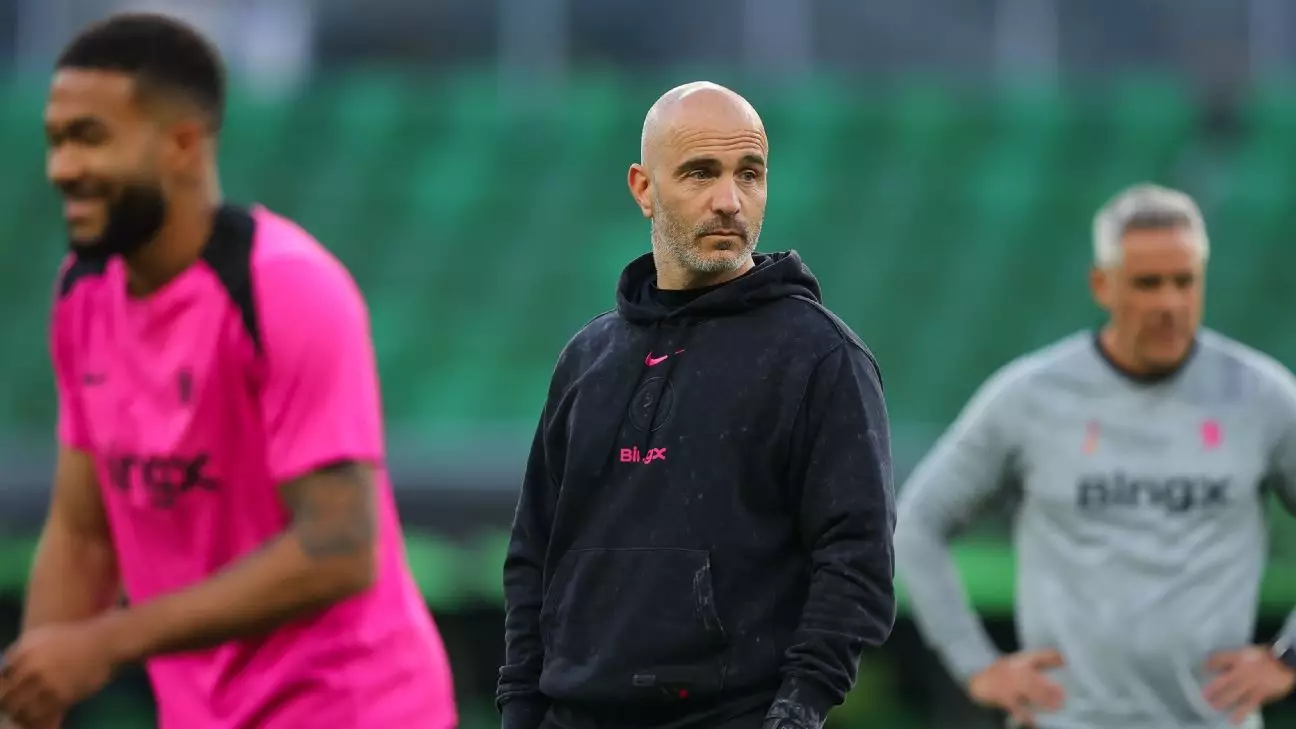In the competitive arena of modern football, monetary gains often influence a club’s strategies and ambitions. Chelsea Football Club stands as a case in point, navigating through the financial intricacies of success as they gear up for the Club World Cup. Their situation reveals a complex intersection of investment, compliance, and ambition. Despite the tempting £97 million reward for the tournament winner, Chelsea’s head coach, Enzo Maresca, clarifies that the financial incentives are not the primary driving force behind their participation. Instead, it appears that a quest for pride and glory overshadows monetary concerns.
Analyzing Chelsea’s financial maneuvers, it is evident that the club has strategically positioned itself within the overarching regulations of the Premier League’s Profit and Sustainability Rules. While the recent sales of properties and assets may raise eyebrows, they underline Chelsea’s commitment to maintaining financial health while pursuing aggressive growth and talent acquisition strategies. The sale of the Copthorne and Millennium hotels, valued at £76.5 million, to a sister company may strike some as controversial, but it has been legitimized by Premier League approval. Meanwhile, the monumental £200 million transfer of their women’s team to parent company BlueCo demonstrates a willingness to break new grounds in women’s football finance.
Aiming for Athletic Brilliance
Amidst the backdrop of these financial moves, Chelsea remains committed to competing at the highest level. As they strive for a spot in the knockout stages of the Club World Cup, the tactical emphasis shifts toward winning games rather than merely securing financial gains. This refreshing perspective, championed by Maresca, serves as a reminder that the essence of football lies in the thrill of competition rather than the relentless pursuit of profit. He emphasizes that the owners’ focus is unwaveringly on the team’s performance, highlighting a healthy football culture that prioritizes victory for its own sake.
The passion fueling this approach is critical, especially for a club that has invested over £1.2 billion on player acquisitions since the transition to new ownership under Todd Boehly and Clearlake Capital in May 2022. The commitment to assembling a talented squad is visible, yet Maresca’s insistence that financial discussions do not dictate their performance aspirations is a breath of fresh air in an industry often mired in profit-centric dialogues.
Challenges on the Horizon
However, distractions loom, such as Reece James’ absence from training due to illness, coinciding with a sweltering Philadelphia heat wave. This situation underscores the reality that even with meticulous planning and financial backing, unforeseen circumstances can impact a squad’s preparation for crucial matches. As Chelsea faces Esperance de Tunis in a pivotal encounter, the stakes are high—not just for the club’s finances, but for their reputation and the dreams of their fans and players alike.
In this confluence of financial scrutiny and competitive spirit, Chelsea’s narrative serves as a poignant reminder that the heart of football beats strongest at the pitch. When motivations align with the ethos of the sport, success becomes a multifaceted pursuit, interwoven with passion, struggle, and an indomitable spirit to emerge victorious.

Leave a Reply